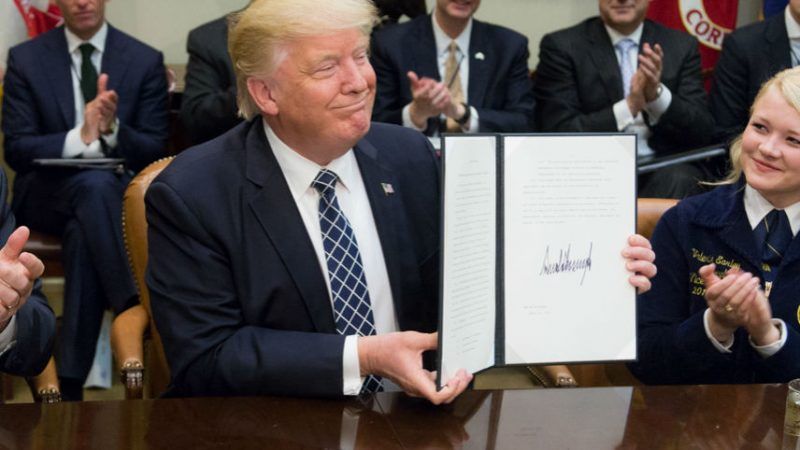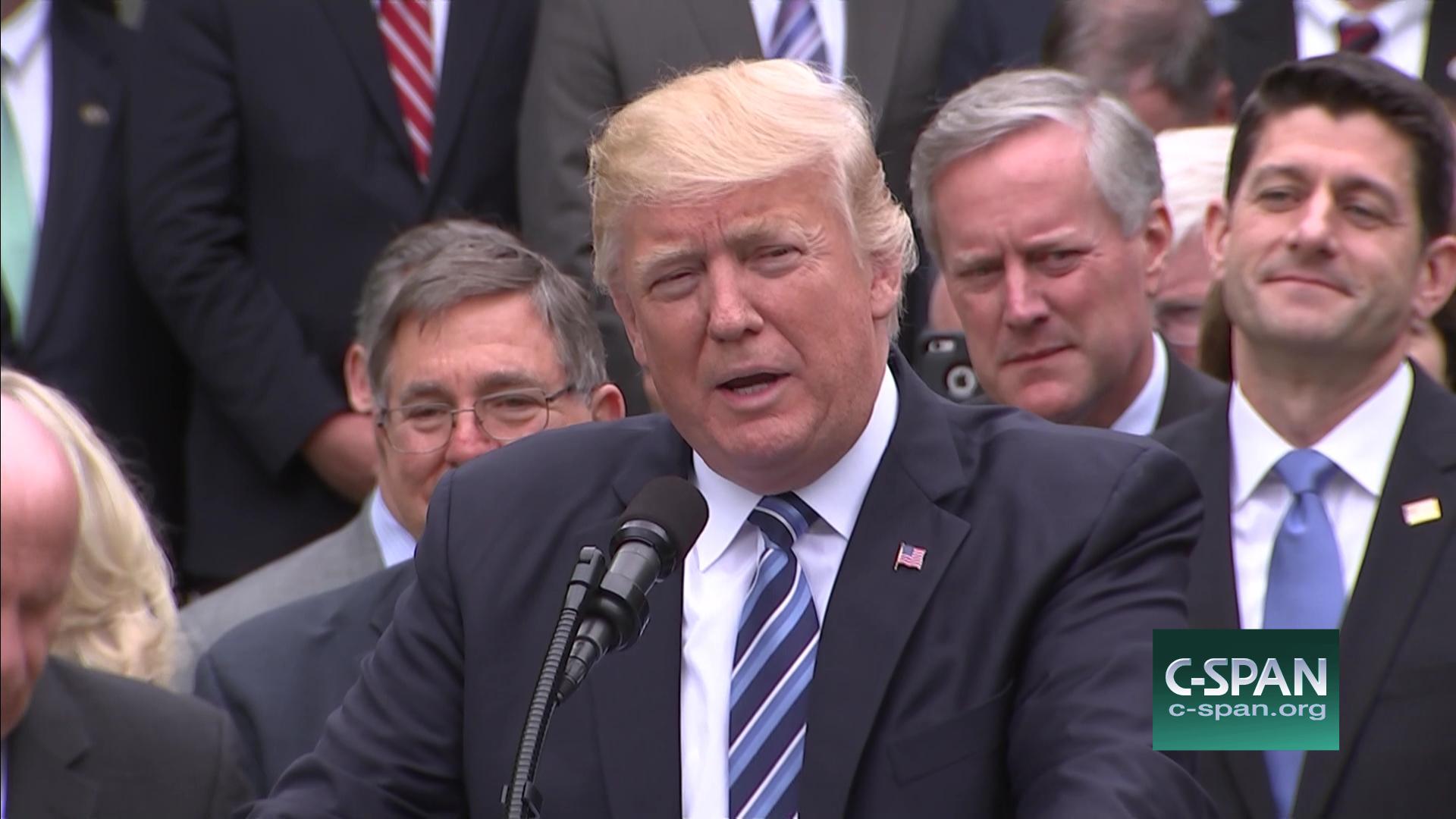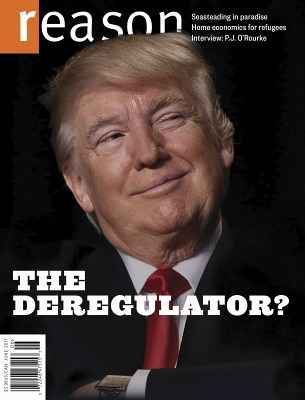Is Donald Trump, of All Presidents, Devolving Power Back to the Legislative Branch?
Contrary to his reputation (and Twitter feed), the president has been selectively trimming executive power.


Donald Trump did not campaign for president as the guy who would reverse the mostly unbroken, century-old trend of the executive power assuming more and more power in the face of an increasingly self-marginalizing Congress. If anything, the imperial presidency looked set to increase given Trump's braggadocious personality and cavalier approach to constitutional restraints. "Nobody knows the system better than me," he famously said during his worryingly authoritarian Republican National Convention speech, "which is why I alone can fix it."
You wouldn't know it from viewing policy through the prism of the president's Twitter feed, which is filled with cajoling and insult toward the legislative branch, but Trump has on multiple occasions taken an executive-branch power-grab and kicked the issue back to Congress, where it belongs. As detailed here last month, the president has taken this approach on Iran sanctions, Obamacare subsidies, and the Deferred Action Against Childhood Arrivals program (DACA), at minimum. And notably, his one Supreme Court nominee, Neil Gorsuch, was most famous pre-appointment for rejecting the deference that courts have in recent decades given to executive-branch regulatory agencies interpreting the statutory language of legislators.

Are there any other examples? Sure—the 15 regulatory nullifications this year via the Congressional Review Act (14 more than all previous presidents combined) are definitionally power-transfers from the executive to legislative. And certainly, the sharp decreases in the enactment, proposal, and even page-count of regulations amount to the administration declining to exercise as much power as its predecessors.
Over at the Wall Street Journal, Chris DeMuth, former president of the American Enterprise Institute, and Reagan-era administrator of the Office of Information and Regulatory Affairs (OIRA), points out some of these underappreciated devolutions, and, with qualified enthusiasm, adds another: Regulatory budget-cutting.
In an executive order issued shortly after taking office, he directed that unless a statute requires otherwise, agencies may issue new regulations only by rescinding two or more existing regulations, with net costs held to an annual budget. His budget for fiscal 2017 was zero, which was easily met after agencies issued few new rules and lawmakers rescinded many under the Congressional Review Act. Now, an OMB directive from [OIRA administrator Neomi] Rao in September has set a goal of "net reduction in total incremental regulatory costs" in fiscal 2018. […]
[A] regulatory budget goes much deeper [than mere cost-benefit analysis of regulations]. It aims not only at restraint but at reforming agency culture. Faced with a two-for-one rule and a requirement to reduce annual costs, regulators will be obliged to monitor the effectiveness of all their rules and to make choices. There will be efforts to game the system, as there always are. But the best game in town may be to shift from maximizing rules to maximizing, within the budget constraint, environmental quality, public health, workplace safety and other regulatory goals. And, in all events, there will be fewer rules!
DeMuth adds, archly, "Many readers may be puzzled that our tempestuous president should preside over the principled, calibrated regulatory reform described here." Bottom line?
With some exceptions (such as business as usual on ethanol), and putting aside a few heavy-handed tweets (such as raising the idea of revoking broadcast licenses from purveyors of "fake news"), President Trump has proved to be a full-spectrum deregulator. His administration has been punctilious about the institutional prerogatives of Congress and the courts. Today there is a serious prospect of restoring the constitutional status quo ante and reversing what seemed to be an inexorable regulatory expansion.
UPDATE: Josh Blackman has a piece on this topic today over at National Review.


Show Comments (93)